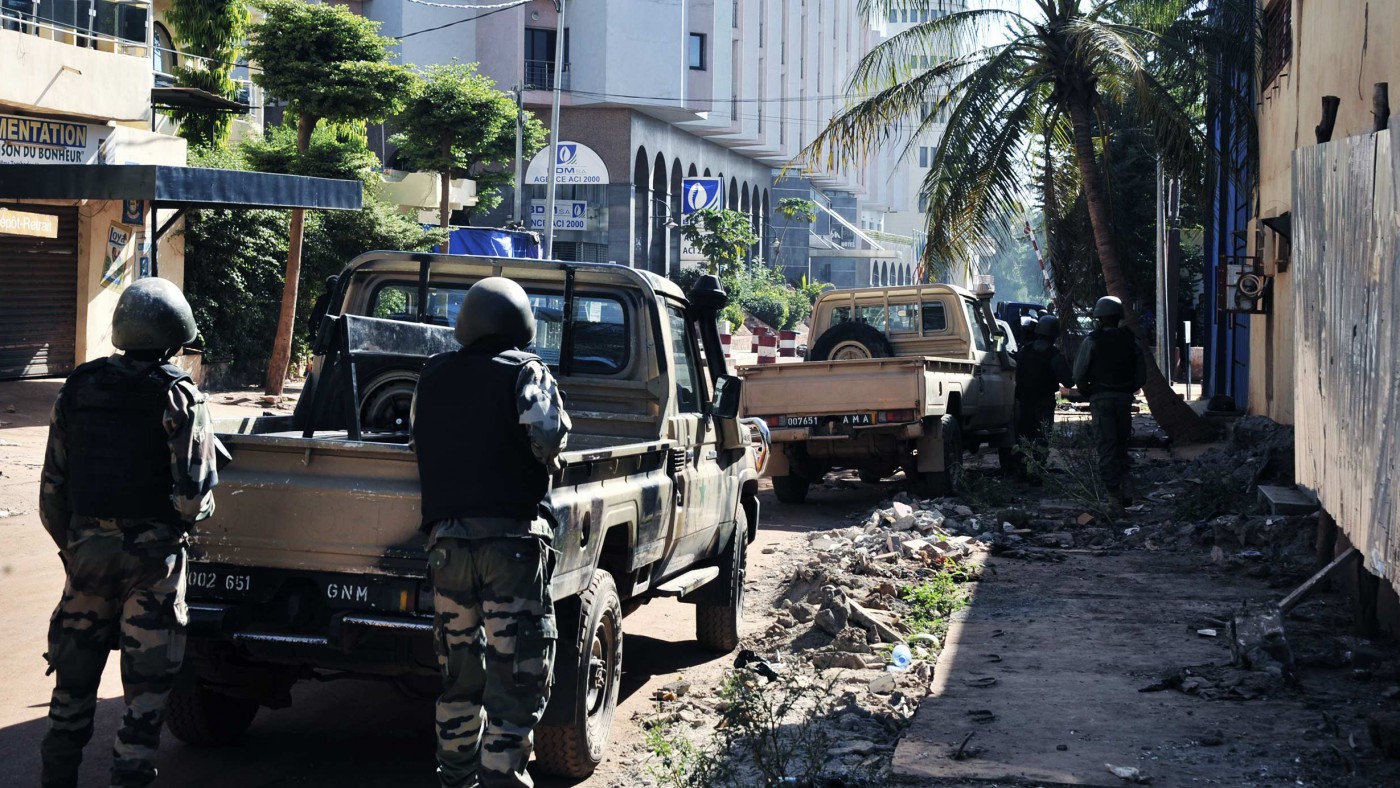So here we go again. First the tragic slaughter of innocents in Paris, followed by that tense, bloodstained hunt for the murderers. Now 170 largely-foreign hostages have been seized by gunmen in an upmarket hotel in the Malian capital of Bamako. The 140 guests being held reportedly include people from France, China and Turkey, along with 30 hotel staff; at least we can give thanks that members of Western air crews along with many others escaped amid the chaos of the assault. There are reports of deaths, while special forces are moving in.
There are strong chances, sadly, that this is instant blowback from the shocking events in France. The rather soulless Radisson Blu hotel is a well-known landmark in the dusty Malian capital; a British journalist who interviewed one of the country’s famous musical bands told me he stayed there just weeks ago. The capital felt secure when I was last there a couple of years ago, yet sadly it is no surprise to see that the jihadists have struck back in this beautiful yet battered nation.
For two decades Mali was seen as a model democracy, with many analysts ignoring its corrosion through corruption and drug trafficking across the desert. Then it collapsed three years ago following an almost-accidental coup led by a disgruntled army captain, which was seized immediately by Toureg rebels seeking independence in the north. They were well-armed after returning from fighting for their long-term supporter Muammar Gaddafi in Libya, and one key figure had fallen under the spell of Islamic radicals; soon, moderates were forced aside and the huge desert areas fell under the control of fundamentalists.
Islamist groups allied to al Qa’ida had grown rich exploiting traditional Saharan smuggling routes as cocaine began to carve its way through west Africa en route to Europe, then boosted their income by kidnapping tourists visiting cities such as the wondrous Timbuktu. Having captured the region, foreign fighters poured in to create a caliphate in the desert. Yet it is important to note their imposition of hardline sharia law – with women forced to cover up, tombs destroyed, adulterers stoned and thieves having hands cut off – was alien to both Tuareg tradition and the sufistic Islam of the south. The banning of music in a nation famous worldwide for so many of its astonishing artists was especially shocking.
So there was immense popular support when a 4,000-strong French force invaded in support of the inept and poorly-equipped Malian army two years ago. They took rapid action when it looked like the bustling trading port of Mopti with its population of 120,000 people was about to fall to the militants. Yet while they drove away Islamist militias and re-imposed a veneer of democracy, the fissures in this alluring country remained close to the surface. The new president has done little to restore faith in politics, while tensions remain between Tuaregs and southerners.
In Mali, as elsewhere in parts of Africa, Muslim fanatics tapped into faultlines created through corruption, discrimination and poverty. And as we see again today, the jihadists may have been defeated but never disappeared. It was easy for them to melt back into the desert, surfacing again and again to strike back at their enemies. United Nations blue helmets have been attacked so often it was seen as the most dangerous of their missions around the world, with 53 peacekeepers killed. There have also been deadly attacks on hotels and restaurants popular with foreigners, even in Bamako.
These depressing events in Bamako prove two things. First, there are huge hurdles ahead in the fight to restore stability in the Sahel, many of which policymakers blinkered by the past have barely begun to understand. And second, that the worldwide war with Islamic militants has few boundaries. This is perhaps the most terrifying aspect of the latest attack.


